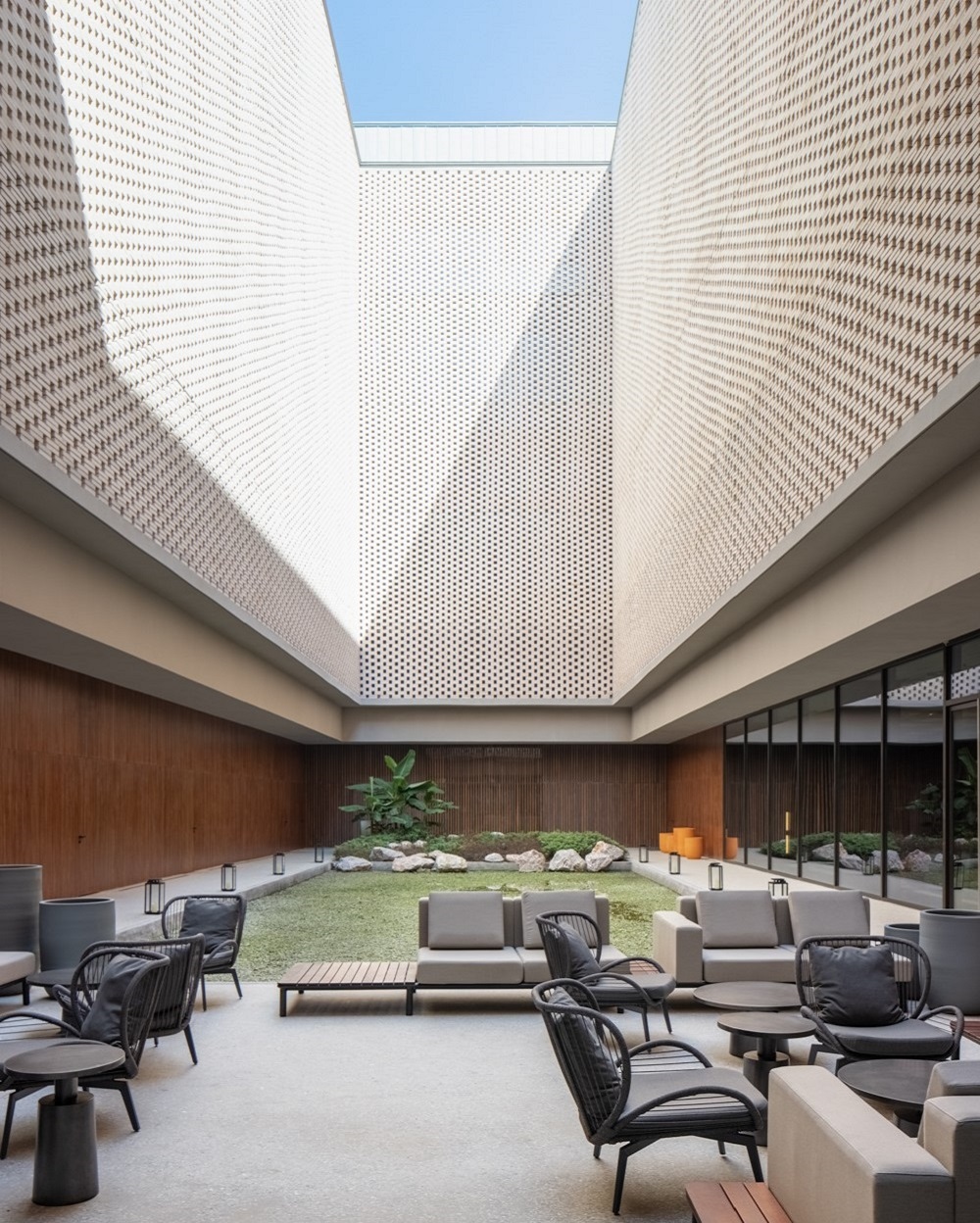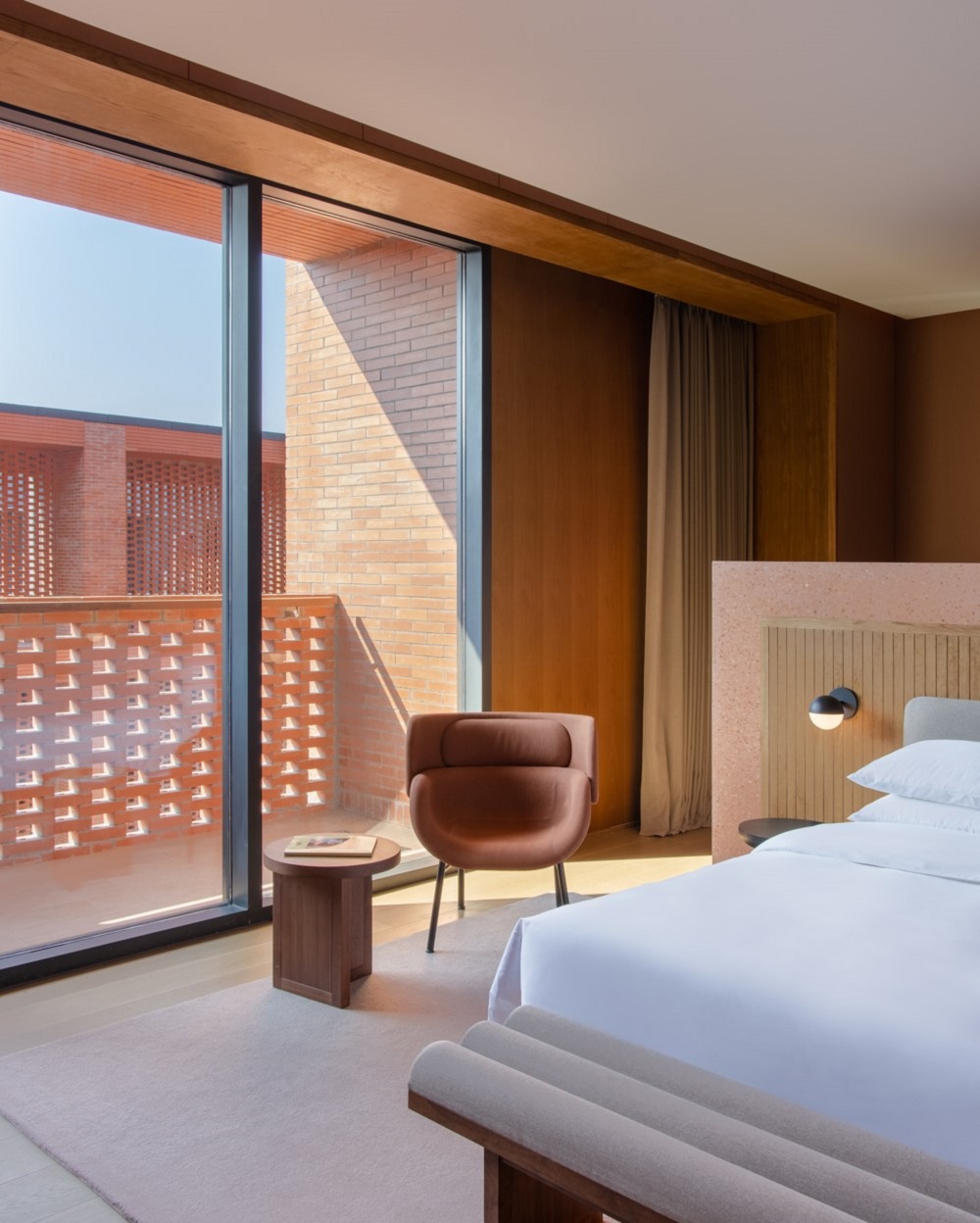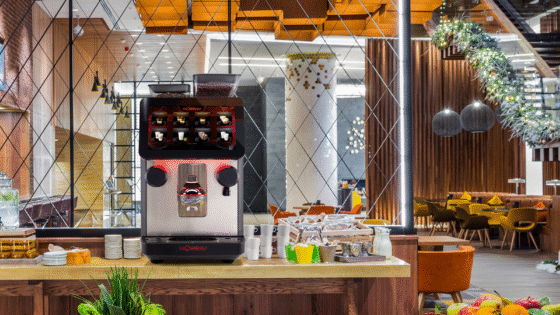Aim Architecture and David Chipperfield Architects are the creative forces behind Taoxichuan Hotel, part of the Unbound Collection by Hyatt. The hotel is sheltered inside three interconnected buildings, immerses guests into an experience through design and architecture, which is a nod to the ceramic heritage of its location. Pauline Brettell writes…
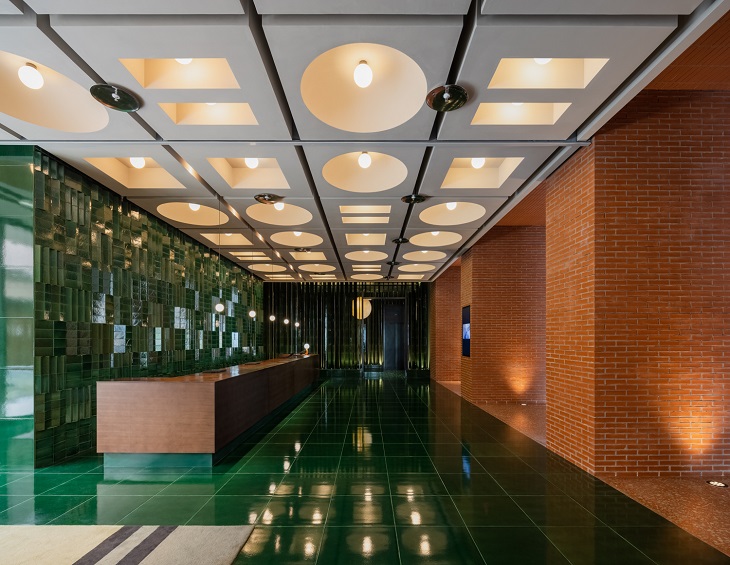
The Unbound Collection is about unique design and it is about story telling. The brand prides itself on its portfolio of one-of-a-kind destination hotels; properties that are part of the fabric and strongly connected to their location. Nowhere is this more visually clear than in AIM Architecture and David Chipperfield Architects’ recent masterpiece. Taoxichuan Hotel is situated in the vibrant Taoxichuan creative and cultural district of Jingdezhen, China. The project is a collaboration between the two architecture studios and occupies three interconnected buildings, every part of which pays tribute to the city’s porcelain heritage in the design, the finishes and the surfaces.

Image credit: Hyatt / Aim Architecture
The project is the story of a journey and takes guests and visitors on the path of the long and fascinating life of porcelain in all its forms and metamorphoses. Jingdezhen, in Northeastern Jiangxi, is the porcelain capital of the world. For more than 1,000 years, it served emperors of all dynasties, and its history is the history of porcelain. With this guiding the design process, the physical spaces as you move through the hotel are divided into tonal and textural themes that traverse the history of porcelain from its origins through to its spread and influence in the broader world, and finally in its return to its native home.
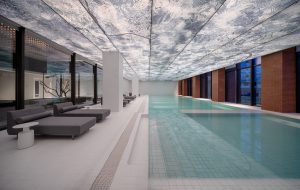
Image credit: Hyatt / Aim Architecture
The different spaces are the Origin in the lobby, the Creation in the lounge, the Discovery in the ballroom, the Fascination seen in the dining area, the Appreciation in the SPA , and finally, the Return as translated into the guestrooms.
- Image credit: Hyatt / Aim Architecture
- Image credit: Hyatt / Aim Architecture
Each space explores and uses ceramic differently, pulling out different colours and textures. Each area is a piece of the journey. The project seeks to unite raw and refinement, turning ceramics into architecture, furniture, and patterns.
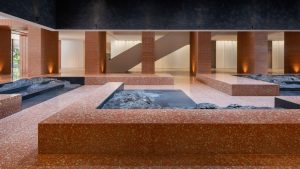
Image credit: Hyatt / Aim Architecture
The contemporary brick architecture, designed by David Chipperfield’s studio, consists of three courtyard blocks connected by a generous interior street. AIM’s approach with the interiors, was first to continue the architecture into the interiors by extending the brick facades of the exterior, and then, from translucent white to glazing greens and blues, each of the three interior volumes is dedicated to one technique. The lounge uses green Celadon glazing. The restaurant and spa are committed to the methods of using cobalt for blue colouring. The meeting and ballroom are all about the lightness and transparency of porcelain. To move through the hotel is to move through different techniques of porcelain.
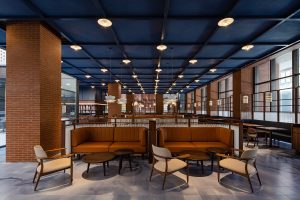
Image credit: Hyatt / Aim Architecture
With roof lights designed to evoke the powerful heat of the kiln, through to the use of softer clay tones in the guestrooms, the hotel is a tribute to the technique and experience of porcelain in the heart of its birthplace. It is worth a journey now as much as was in the times of the Portuguese or Dutch tradesmen and Chinese emperors. Here, ceramic is commemorated in a unique way and is explored both as an honest material, along with its versatility and power in interior design.
> Since you’re here, why not check in on Hyatts pipeline for 2022?
Main image credit: Image credit: Aim Architecture

